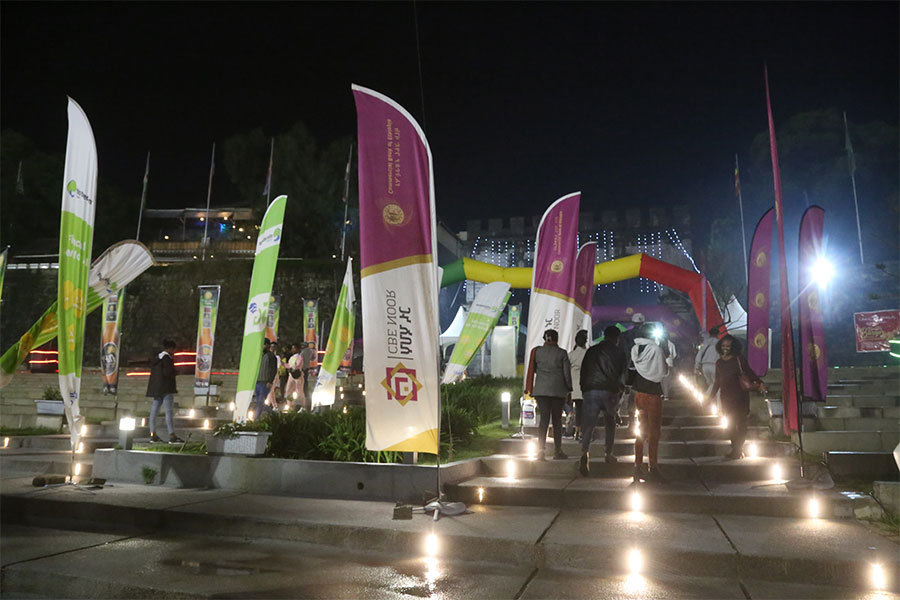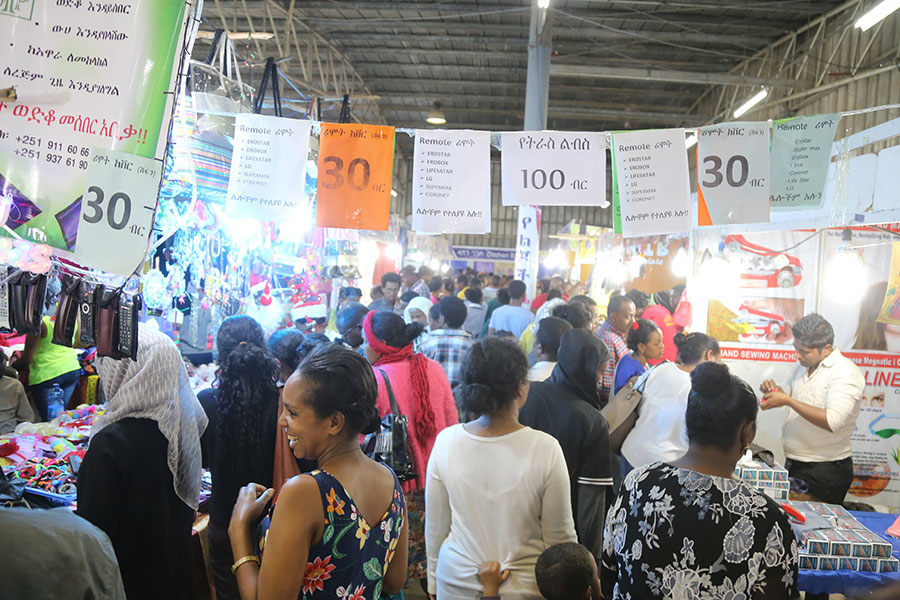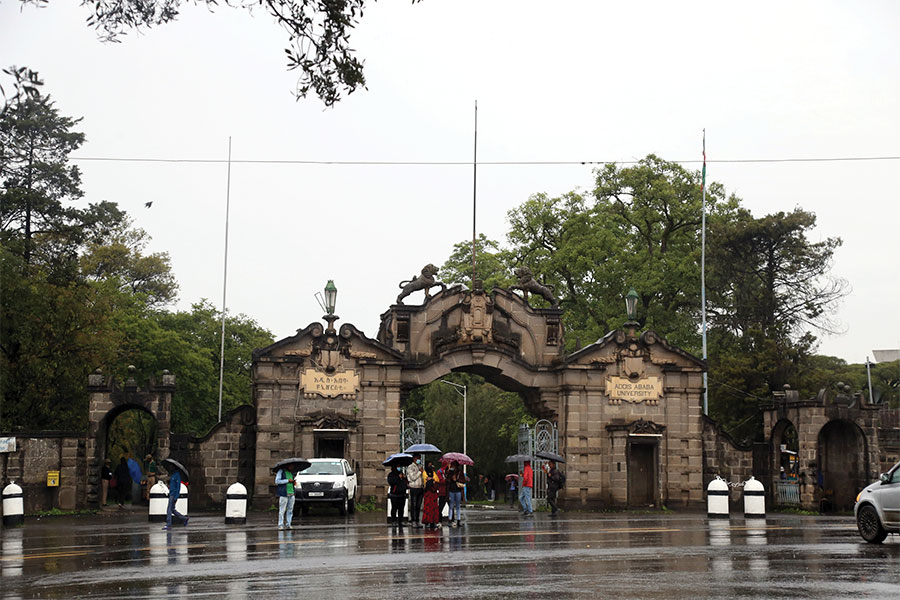
Agenda | May 20,2024
The absence of technological equipment to control the contraband trade near national borders and low-quality animal feed has cast a shadow on livestock export, undermining possible forex earnings while serving as a breeding ground for black market exchanges.
The Ministry of Trade & Regional Integration experts proposed a bill to regulate the largely informal and underdeveloped animal husbandry sector's supply chain, logistics, and infrastructure, availed for public discussion a fortnight ago.
Enabling access to credit for breeders, facilitation of land for prospective investors, construction of animal quarantine centres around dry ports and creation of a transport infrastructure capable of accommodating the movement of live animals are laid out as some of the strategic goals in the policy pending a nod from the Council of Ministers.
The country has gained 4.3 million dollars from livestock, which accounted for a meagre 0.4pc of total earnings in the first quarter of 2023. The volume of livestock export declined by 46pc while international prices have shown a 39pc increase.
The lacklustre performance is attributed to the absence of a legal framework to regulate the sector, despite having the continent's largest livestock population, with nearly 70 million cattle, 40 million sheep and 50 million goats.
Exporters are opting out of the business and waiting to see if the air will clear with the new policy.
Ahmed Amin, a livestock exporter for over two decades, resides in Harari Regional State. He is waiting to see if the markets settle down to get back in the game, unable to compete with the illicit traders with a clear advantage.
It would cost around 2,000 dollars to buy a first-grade camel weighing above 600Kg from a breeder for a licensed trader like Ahmed. In contrast, an illicit trader could buy it for half the amount.
"The discrepancy between formal and black market exchange is taking us out of business," he said.
Livestock exporters also call for quality to be prioritised in fostering better international trade. They suggest introducing better feed to demand higher prices as exporters observe deteriorating qualities.
A report to Alliance Biodiversity by Sintayehu Alemayehu indicated that livestock productivity declines during the dry season when the quality and quantity of forage are limited. Decreased pasture production coupled with limited water availability was cited as a significant constraint for producers, making them unable to meet the necessary nutritional requirements.
A lecturer at Addis Abeba University, Abdi Feyissa (PhD), stressed the importance of maintaining the health of livestock. He emphasized the intricate relationship between nutrition and the immunity of animals. Abdi mentioned that nutrient-deficient livestock can lead to decreased productivity. On the other hand, constant engagement with academics can significantly increase the sector's productivity.
"You get what you put out," he said.
Experts argue the nutritional composition of the feed is intricate and has an impact that stretches far beyond productivity, stressing the need to streamline the supply chain.
Ewnetu Kebede, an animal production expert with a list of publications to his name, believes animals require a balanced diet to remain productive and healthy. He says maize and soybeans are energy-rich crops with immense contributions to a balanced feed but are not cultivated for those purposes.
"There isn't an inch of land cultivated for animal feed," he said.
Ewnetu observes the feed produced by factories lacks essential vitamins necessary for productive livestock. For him, the infusion of Alfalfa, a perennial flowering plant used as forage, with similar crops would positively correlate to production.
He recommends stronger unions between breeders to acquire land dedicated to animal feed production, taking experiences from countries like Brazil.
There are 42 animal feed producer companies regulated by the Ethiopian Agricultural Authority.
The Director of Feed Registration & Regulation, Zelalem Abebe, said companies choose to produce industrially than cultivate.
"We can only regulate quality, not what they choose to produce," he told Fortune.
The nutritional value is not debatable among veterinarians that support the broader cultivation of the crop.
Yilma Yehunshet, a veterinarian who distributes feed for poultry and dairy farms, said better nutrition will augment the quality of dairy and meat products while malnutrition compromises the immune system of livestock.
The high cost of Alfalfa which is over 3,000 Br per Kg, has hampered its wide adoption while the Ministry of Agriculture recognizes its utility to increase productivity and boost the immune system of livestock.
The Ministry of Trade & Regional Integration officials revealed the long-term plan to establish a sustainable supply chain by utilising agricultural and industrial byproducts. The Director of Feed Development, Araya Abraham, reported the production of approximately 144 million tons of dry matter feed on more than 26,000hct of land this year.
He also highlighted the training provided to over a 1,000 farmers on managing their byproducts from crops like maize and soybeans, allowing them to be submitted to factories. Abraham stressed the need for a collaborative effort among all stakeholders to maximize gains across the supply chain.
PUBLISHED ON
May 27,2023 [ VOL
24 , NO
1204]

Agenda | May 20,2024

Radar | Aug 12,2023

Fortune News | Jun 23,2019

Radar | Oct 09,2021

Commentaries | Feb 27,2021

Fortune News | Sep 03,2022

Featured | Jan 05,2019

Radar | Jan 18,2020

Radar | May 27,2023

Fortune News | Aug 14,2022

Jul 13 , 2024 . By AKSAH ITALO
Investors who rely on tractors, trucks, and field vehicles for commuting, transportin...

Jul 13 , 2024 . By MUNIR SHEMSU
The cracks in Ethiopia's higher education system were laid bare during a synthesis re...

Jul 13 , 2024 . By AKSAH ITALO
Construction authorities have unveiled a price adjustment implementation manual for s...

Jul 13 , 2024
The banking industry is experiencing a transformative period under the oversight of N...

Jul 20 , 2024
In a volatile economic environment, sudden policy reversals leave businesses reeling...

Jul 13 , 2024
Policymakers are walking a tightrope, struggling to generate growth and create millio...

Jul 7 , 2024
The federal budget has crossed a symbolic threshold, approaching the one trillion Bir...

Jun 29 , 2024
In a spirited bid for autonomy, the National Bank of Ethiopia (NBE), under its younge...